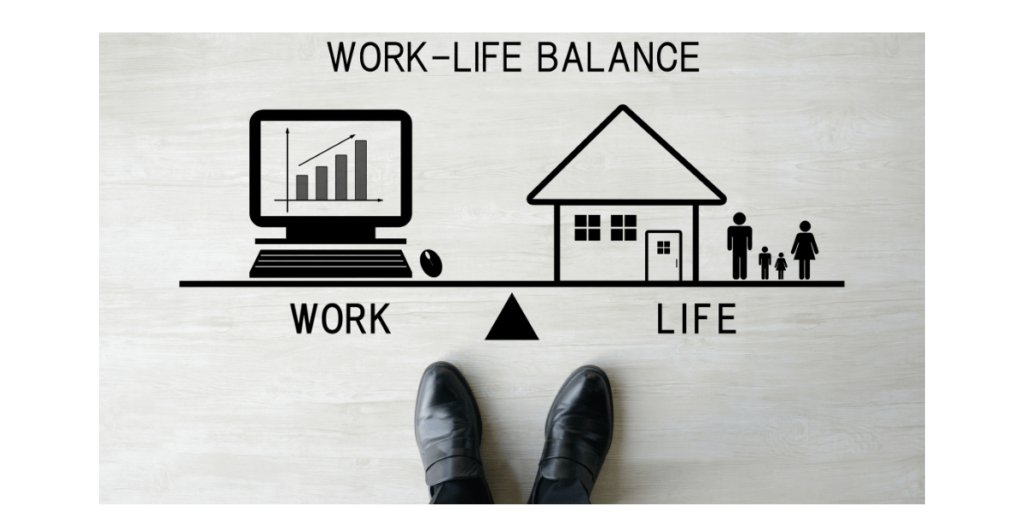Effective Daily Self-Care Routines for Maintaining Work-Life Balance
Achieving an effective work-life balance is more crucial now than ever. In today’s fast-paced world, the distinction between work and personal life often blurs, leading to overwhelming stress and burnout. The constant pressure to excel professionally while maintaining personal responsibilities necessitates the adoption of systematic approaches to self-care. Effective self-care is not just about pampering oneself occasionally; it’s a daily commitment to practices that contribute to mental, physical, and emotional well-being.
Understanding the importance of work-life balance is the first step toward a healthier lifestyle. An imbalance can result in increased stress, decreased productivity, and detriments to both physical and mental health. By prioritizing this balance, one can ensure sustained professional performance while still having the energy and enthusiasm to enjoy personal life. Daily routines play a significant role in maintaining this balance, making it essential to develop and adhere to consistent self-care habits.
Self-care routines are not one-size-fits-all; they should be tailored to fit individual lifestyles. These routines encompass a range of activities, from morning rituals to evening wind-down practices. They also involve ensuring proper nutrition, regular physical activity, mindfulness exercises, and more. When integrated into daily life, these routines can significantly enhance overall well-being, paving the way for a harmonious balance between work and personal life.
This comprehensive guide will delve into various aspects of effective daily self-care routines. We will explore why work-life balance is crucial, explain the concept of daily self-care, and provide actionable tips on creating consistent routines that cater to various needs. This article aims to provide a roadmap for maintaining balance and achieving a fulfilling, less stressful life.
Why Work-Life Balance is Crucial
Work-life balance is essential for maintaining both mental and physical health. An imbalance where work consistently takes precedence over personal life can lead to exhaustion, increased stress levels, and a higher risk of health issues, including anxiety and depression. Conversely, when there is a healthy balance, individuals tend to be more productive, motivated, and satisfied in both their personal and professional lives.
Let’s examine the key benefits of work-life balance:
- Reduced Stress: By ensuring time for relaxation and personal interests, stress levels are significantly reduced.
- Increased Productivity: When well-rested and less stressed, individuals are more focused and efficient at work.
- Improved Relationships: Having time for loved ones and personal activities strengthens relationships and creates a support system that contributes to overall well-being.
The consequences of neglecting work-life balance are severe. Chronic stress from overworking can lead to burnout, characterized by emotional exhaustion, cynicism, and reduced professional efficacy. Burnout not only affects job performance but also deteriorates personal relationships and physical health. Therefore, making work-life balance a priority is not just a luxury; it is vital for long-term success and happiness.
Achieving work-life harmony involves setting firm boundaries between professional responsibilities and personal time. This can involve simple actions like turning off work notifications after hours or more structured strategies such as flexible working arrangements. Regardless of the method, the aim is to create a clear delineation between work and personal life that promotes overall well-being.
Daily Self-Care Explained
Daily self-care comprises routine activities that individuals engage in to maintain and enhance their health, mood, and overall well-being. Unlike occasional self-care, which might include activities like spa days or holidays, daily self-care is about integrating small, consistent actions into everyday life.
To understand daily self-care better, consider the following aspects:
- Physical Self-Care: This includes activities like regular exercise, sufficient sleep, and proper nutrition. Taking care of physical health ensures that the body functions optimally and can better manage stress.
- Emotional Self-Care: Activities such as mindfulness, meditation, journaling, and spending time with loved ones help maintain emotional balance. It’s about recognizing and honoring your emotions and setting aside time to process them.
- Social Self-Care: Maintaining connections with friends, family, and the community. Social interactions are vital for mental health and offer support systems that can be relied upon during tough times.
The purpose of these daily self-care activities is to create a foundation that supports overall well-being. Self-care does not need to be time-consuming; even a few minutes each day dedicated to these activities can have a profound impact. The key is consistency and making self-care a non-negotiable part of the day.
Incorporating daily self-care into routines might require some initial effort, but the benefits far outweigh the challenges. By committing to self-care, individuals empower themselves to handle daily stresses more effectively, improve their mood, and enhance their overall quality of life.
How to Create a Consistent Morning Routine
A consistent morning routine sets a positive tone for the day. It is a series of actions performed consistently every morning to prepare oneself mentally and physically for the day ahead. A well-crafted morning routine can increase productivity, improve mood, and alleviate stress.
Steps to Create a Consistent Morning Routine:
- Wake Up Early: Aim to wake up at the same time every day. This creates a stable circadian rhythm and gives you ample time to start the day without rushing.
- Hydrate: Drinking a glass of water right after waking up kickstarts your metabolism and rehydrates your body after hours of sleep.
- Mindfulness: Incorporate mindfulness practices like meditation or deep breathing exercises. Even 5-10 minutes can help clear your mind and set a calm tone for the day.
Sample Morning Routine Table
| Time | Activity |
|---|---|
| 6:00 am | Wake up and hydrate |
| 6:10 am | Meditation/Deep Breathing |
| 6:30 am | Light Exercise (Stretching/Yoga) |
| 7:00 am | Healthy Breakfast |
| 7:30 am | Review the day’s schedule |
Benefits of a Morning Routine:
- Boosts Productivity: A structured start to the day prepares you mentally and physically for the tasks ahead.
- Enhances Mood: Positive activities in the morning, like exercise and mindfulness, release endorphins, which improve mood.
- Reduces Stress: Having a predictable start reduces morning chaos and sets a calm tone for the day.
A well-planned morning routine acts as a cornerstone for a balanced day, making it essential to tailor it to suit individual preferences and schedules. Over time, this routine becomes a habit that significantly contributes to maintaining work-life harmony.
Nutrition Tips for a Balanced Day
Proper nutrition plays a crucial role in maintaining energy levels, enhancing focus, and reducing stress. By fueling your body with the right nutrients, you can ensure sustained productivity throughout the day and better overall health.
Important Nutrition Tips:
- Balanced Breakfast: Start your day with a balanced breakfast that includes protein, complex carbs, and healthy fats. This combination ensures steady energy release and keeps you satiated.
- Regular Meals: Avoid long gaps between meals. Eating small, balanced meals or snacks every 3-4 hours keeps blood sugar levels stable and prevents energy slumps.
- Hydration: Drinking adequate water throughout the day is essential for all body functions, including cognitive performance and energy levels.
Example of a Balanced Meal Plan
| Meal | Time | Components |
|---|---|---|
| Breakfast | 7:00 am | Oatmeal with fruits and nuts |
| Mid-Morning Snack | 10:00 am | Greek yogurt with a handful of berries |
| Lunch | 1:00 pm | Grilled chicken salad with mixed greens |
| Afternoon Snack | 4:00 pm | Hummus with vegetable sticks |
| Dinner | 7:00 pm | Baked salmon, quinoa, and steamed vegetables |
Benefits of Balanced Nutrition:
- Sustained Energy Levels: Proper nutrition ensures that you have the energy required to meet your daily demands without feeling fatigued.
- Improved Focus: Nutrient-dense foods enhance cognitive function, helping you stay focused and efficient.
- Mood Regulation: Certain nutrients, such as Omega-3 fatty acids and folate, are linked with improved mood and reduced anxiety.
By paying attention to what, when, and how you eat, you can optimize your nutrition for maximum benefit. Consistently following these tips will support both your personal and professional life, contributing significantly to work-life balance.
Daily Exercise to Enhance Mood and Focus
Regular physical activity is a cornerstone of effective self-care and maintaining balance. Exercise boosts mood, improves focus, and helps manage stress, making it a critical component of a daily routine.
Types of Daily Exercise:
- Aerobic Exercise: Activities like walking, jogging, or cycling increase cardiovascular fitness and release endorphins, the body’s natural mood lifters.
- Strength Training: Involves using resistance to build muscle strength and endurance. It enhances metabolism and contributes to overall physical health.
- Flexibility Exercises: Practices such as yoga or stretching improve flexibility, reduce muscle tension, and promote relaxation.
Sample Exercise Schedule
| Day | Activity | Duration |
|---|---|---|
| Monday | Walking | 30 minutes |
| Tuesday | Strength Training | 45 minutes |
| Wednesday | Yoga | 30 minutes |
| Thursday | Jogging | 30 minutes |
| Friday | Strength Training | 45 minutes |
| Saturday | Cycling | 1 hour |
| Sunday | Rest/Light Stretching | 20 minutes |
Benefits of Daily Exercise:
- Enhanced Mood: Physical activity triggers the release of endorphins, which reduce stress and promote feelings of happiness.
- Improved Focus: Exercise boosts blood flow to the brain, enhancing cognitive function and concentration.
- Stress Reduction: Regular movement helps manage stress levels by reducing the body’s stress hormones and stimulating the production of mood-enhancing chemicals.
Incorporating regular exercise into your daily routine doesn’t have to be overwhelming. Starting with activities you enjoy and gradually increasing intensity can make exercise a sustainable part of your self-care regimen.
Mindfulness Techniques for Managing Work Stress
Mindfulness is a powerful tool for managing work stress and maintaining emotional balance. By being present and fully engaged with the current moment, mindfulness practices can significantly reduce stress and improve overall well-being.
Practical Mindfulness Techniques:
- Deep Breathing: Simple deep breathing exercises can calm the nervous system and reduce stress. Focus on slow, deep breaths for a few minutes, paying attention to the breath’s movement.
- Meditation: Setting aside a few minutes each day for meditation can enhance mental clarity and reduce stress. Techniques like guided meditation or focusing on a mantra are effective.
- Body Scan: This involves focusing on different parts of the body, starting from the toes and moving upwards, identifying any tension and consciously releasing it.
Mindfulness Practice Table
| Technique | Duration | Frequency |
|---|---|---|
| Deep Breathing | 5 minutes | Daily |
| Meditation | 10 minutes | Daily |
| Body Scan | 15 minutes | 3 times/week |
Benefits of Mindfulness:
- Stress Reduction: By focusing on the present moment, mindfulness interrupts the cycle of stress-inducing thoughts.
- Improved Emotional Regulation: Mindfulness helps in recognizing and managing emotional responses more effectively.
- Enhanced Focus: Regular practice of mindfulness can improve concentration and cognitive function.
Integrating mindfulness techniques into your daily routine can be simple yet transformative. These practices offer a refuge from the constant demands of work, helping you maintain a sense of calm and balance amidst daily stresses.
Boundaries: Separating Work from Home
Setting boundaries between work and home life is essential for maintaining work-life balance. With the rise of remote work, the lines between personal and professional life have become increasingly blurred, making it crucial to establish clear boundaries.
Strategies for Setting Boundaries:
- Dedicated Workspace: Create a specific area in your home that is designated for work. This helps compartmentalize work tasks from personal life.
- Scheduled Work Hours: Set specific work hours and stick to them. Avoid work-related activities outside these hours to preserve personal time.
- Technology Management: Turn off work-related notifications during personal time to prevent work from intruding on home life.
Sample Boundary Setting Table
| Action | Work Hours | Personal Time |
|---|---|---|
| Dedicated Workspace | Office/Desk Area | Living Areas |
| Scheduled Work Hours | 9:00 am – 5:00 pm | After 5:00 pm |
| Technology Management | Work Notifications On | Work Notifications Off |
Benefits of Setting Boundaries:
- Reduced Burnout: Clear boundaries help prevent overwork and burnout by ensuring time for rest and personal activities.
- Improved Relationships: Having distinct personal time fosters better relationships with family and friends.
- Increased Focus: With established work hours, you can concentrate fully on work during those times, improving productivity.
Setting and respecting boundaries require discipline but is essential for achieving work-life harmony. These strategies ensure that work doesn’t encroach on personal life, preserving time for relaxation and personal interests.
Utilizing Breaks to Re-energize
Taking regular breaks during work is vital for maintaining productivity and reducing stress. Breaks provide an opportunity to relax, refresh, and return to tasks with renewed focus and energy.
Types of Breaks:
- Short Breaks: Brief, frequent breaks (5-10 minutes) to stretch, walk, or perform light activities.
- Lunch Breaks: A longer break (30-60 minutes) to eat, relax, and recharge.
- Microbreaks: Very short breaks (1-2 minutes) to rest eyes or take a few deep breaths.
Sample Break Schedule
| Time | Break Type | Activity |
|---|---|---|
| 10:00 am | Short Break | Stretching |
| 12:30 pm | Lunch Break | Eating and light reading |
| 3:00 pm | Short Break | Walking |
| Every hour | Microbreak | Eye rest and deep breathing |
Benefits of Taking Breaks:
- Increased Productivity: Short breaks prevent fatigue and sustain energy levels, leading to more efficient work.
- Enhanced Creativity: Stepping away from tasks allows the brain to rest and often results in creative solutions to problems.
- Reduced Stress: Breaks help mitigate stress by providing intervals of relaxation which is crucial for mental well-being.
By incorporating regular breaks into your work routine, you can maintain higher levels of productivity and minimize stress. These breaks are essential for staying energized and focused throughout the day.
Tips for an Effective Evening Routine
An effective evening routine helps wind down from the day’s activities and prepares the body and mind for restful sleep. A consistent evening routine can improve sleep quality and overall well-being.
Components of an Evening Routine:
- Disconnect from Work: Shut down work-related tasks and technology at least an hour before bedtime to signal the end of the workday.
- Relaxation Activities: Engage in relaxing activities like reading, taking a warm bath, or listening to soothing music.
- Sleep Preparation: Create a conducive sleep environment by dimming lights, setting a comfortable room temperature, and avoiding stimulating activities.
Sample Evening Routine Table
| Time | Activity |
|---|---|
| 8:00 pm | Disconnect from work |
| 8:30 pm | Light stretching or yoga |
| 9:00 pm | Reading or listening to music |
| 9:30 pm | Prepare for bed (brushing teeth, etc.) |
| 10:00 pm | Lights out and sleeping |
Benefits of an Evening Routine:
- Improved Sleep Quality: A structured wind-down period helps the body transition into sleep mode, leading to deeper, more restful sleep.
- Reduced Stress: Evening relaxation activities help to de-stress and promote calmness.
- Enhanced Mood: Going to bed relaxed and waking up refreshed improves overall mood and outlook.
By establishing an evening routine, you can end your day on a calm note and ensure a restful night’s sleep, contributing to better overall health and work-life balance.
The Role of Sleep in Personal and Professional Success
Sleep is fundamental to both personal wellbeing and professional success. Adequate sleep enhances physical health, cognitive function, and emotional stability, all crucial for effective self-care.
Benefits of Adequate Sleep:
- Enhanced Cognitive Function: Good sleep improves memory, decision-making, and problem-solving skills.
- Improved Physical Health: Sleep supports the body’s repair processes, boosts the immune system, and regulates hormones.
- Emotional Stability: Adequate sleep is essential for managing emotions and stress levels effectively.
Sleep Hygiene Tips
| Tip | Explanation |
|---|---|
| Consistent Sleep Schedule | Go to bed and wake up at the same time every day, even on weekends |
| Comfortable Sleep Environment | Ensure a dark, quiet, and cool room for sleeping |
| Avoid Stimulants | Limit caffeine and screen time before bed |
Importance of Sleep in Work-Life Balance:
- Increased Productivity: Rested individuals are more focused, efficient, and productive at work.
- Better Health: Adequate sleep reduces the risk of chronic health conditions and supports overall well-being.
- Balanced Emotions: Good sleep helps in coping with daily stresses and improves mood stability.
Maintaining good sleep hygiene is essential for achieving personal and professional success. By prioritizing sleep, you can enhance your overall quality of life and ensure sustained performance.
Continuous Evaluation of Self-Care Routines
Continuous evaluation of self-care routines is necessary to ensure they remain effective and aligned with changing needs and circumstances. Regularly assessing these routines allows for adjustments that can enhance their efficacy.
Steps for Evaluating Self-Care Routines:
- Reflection: Take time regularly to reflect on current routines. Assess what is working and what isn’t.
- Feedback: Seek feedback from trusted friends or healthcare professionals about your self-care practices.
- Adjustment: Be flexible and adjust routines as necessary to better fit your lifestyle and current needs.
Evaluation Checklist Table
| Aspect | Questions to Ask |
|---|---|
| Physical Health | Am I feeling physically energized and healthy? |
| Emotional Wellbeing | Are my self-care activities helping me manage stress? |
| Social Connections | Am I nurturing my relationships adequately? |
| Work Productivity | Is my self-care routine supporting my work performance? |
Benefits of Regular Evaluation:
- Enhanced Effectiveness: Continuous evaluation ensures that self-care routines remain effective and beneficial.
- Adaptability: It allows routines to be adapted to life changes, ensuring they continue to meet evolving needs.
- Sustained Balance: Regular check-ins help maintain work-life harmony by keeping self-care practices relevant and impactful.



